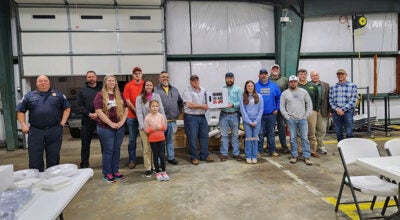IP real estate tax lawsuit dismissed
Published 9:56 pm Friday, October 12, 2018
|
Getting your Trinity Audio player ready...
|
ISLE OF WIGHT
On Oct. 5 in Isle of Wight County Circuit Court, Judge Carl E. Eason Jr. dismissed a lawsuit by International Paper against Isle of Wight County concerning what the company believed to be erroneous assessments of real estate taxes on the Franklin paper mill.
The complaint, filed by Craig D. Bell of the Richmond-based law firm McGuire Woods LLP on behalf of IP, alleged that for the past seven fiscal years, the county had assessed the tax value of the Franklin mill three to four times higher than its fair market value. IP’s prayer for relief sought a total of $3,904,602.73 in damages for all seven fiscal years, plus accrued interest and any other relief as justice may require. Representing the county was the firm Sands Anderson P.C.
As part of his ruling, Judge Eason granted a motion by the county to strike the opinion of Michael G. Miller as to the value of the real estate as a whole. Miller is an appraiser with Colliers International Group Inc., whom McGuire Woods hired to produce a report contesting the county’s tax evaluation of the Franklin mill.
Because of that ruling, and because the court had neither accepted nor rejected the opinion of John Soscia, one of the Sands Anderson’s expert appraiser witnesses, Eason ruled that International Paper had not met its burden of proof.
Andrew McRoberts, lead counsel for the county in this case, explained that the court had accepted IP’s argument that there were two highest and best uses for the acreage comprising the Franklin Mill. These are industrial and agricultural, or, as Miller had termed, “excess land.” Highest and best use is an appraisal term used to describe the use of a property that is physically possible, legally permissible and maximally productive, McRoberts said.
The court rejected Miller’s figure of 78 acres as the only portion that should be considered to have an industrial highest and best use. However, the court could not come to a conclusion as to exactly how many acres should be considered industrial versus agricultural, and thus, could not come to a fair value of the property.
When contesting real estate tax assessments, the taxpayer — in this case, IP — must prove conclusively that the tax assessment is incorrect. Without this proof, the county’s tax assessment is presumed correct, McRoberts explained.
The verdict was supposed to have been announced on Sept. 26, but needed to be rescheduled due to Isle of Wight County’s criminal court docket lasting longer than expected that day.
Jennifer Dixon, spokesperson for International Paper, would only state that the company does not comment on pending litigation.




